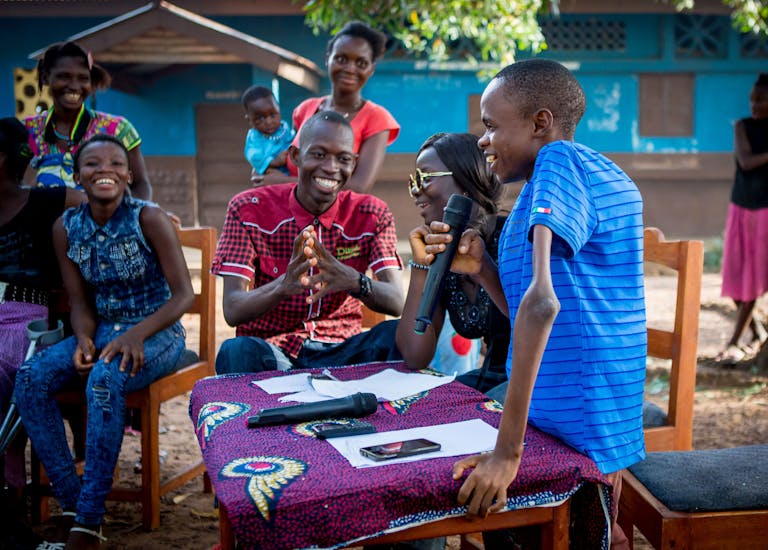Voices for Inclusion

Liliane Fonds, the Dutch Coalition on Disability and Development and Voice have joined hands to bring together marginalised groups from Africa and Asia through peer-to-peer exchanges on advocacy.
Collaboration towards policy influencing
The ‘Voices for Inclusion’ project focuses on learning between different types of marginalised groups in 5 countries (Sierra Leone, Rwanda, Nigeria, Indonesia and Philippines) and discovering if collaboration between these groups can lead towards more effective influencing of policy and practices.
Site visits and learning event
In July and August 2019, 3 selected organisations in each country visited one another to understand each other’s approach on influencing policy and practices, based on a good practice which has been documented. These peer-learning visits were guided by a national consultant. The insights from these visits have been collected and further discussed during a learning event in a central place in the country. Consequently, all insights will be captured in one learning report per country.
International learning event
In January 2020, representatives of the 15 participating organisations gathered for a 3-day international learning event in The Netherlands. During the first two days, participants shared their sound practices on advocacy and learned about the importance of intersectionality for effective advocacy. The third day they participated to the ‘Pushing boundaries in advocacy for inclusion’ conference.
During the learning event, these organisations won an award for the most exemplary influencing practices: SAID Rwanda, WHER Nigeria, EDSI Sierra Leone, CIS Timor Indonesia and LoveLife Philippines. Additionally, the Voices for Inclusion Award was granted to WHER Nigeria for the most innovative project proposal focused on advocacy with an intersectional approach.
Lessons learned
At the conference the publication Building an inclusive society, experiences from the field was presented. This publication captures the outcomes of the ‘Voices for Inclusion’ learning trajectory.
Background
People can face exclusion on multiple levels, based on their gender, age, ethnicity, disability, class, orientation etc. However, some people face discrimination for different reasons simultaneously. For example, girls living with disabilities face triple exclusion: age, gender and impairment.
Effective advocacy strategies to address such complex forms of social exclusion are rooted in an understanding of what drives exclusion. For advocacy strategies to be more inclusive, an intersectional approach provides insight in how to respond to the specific needs of a diversity of identities.





